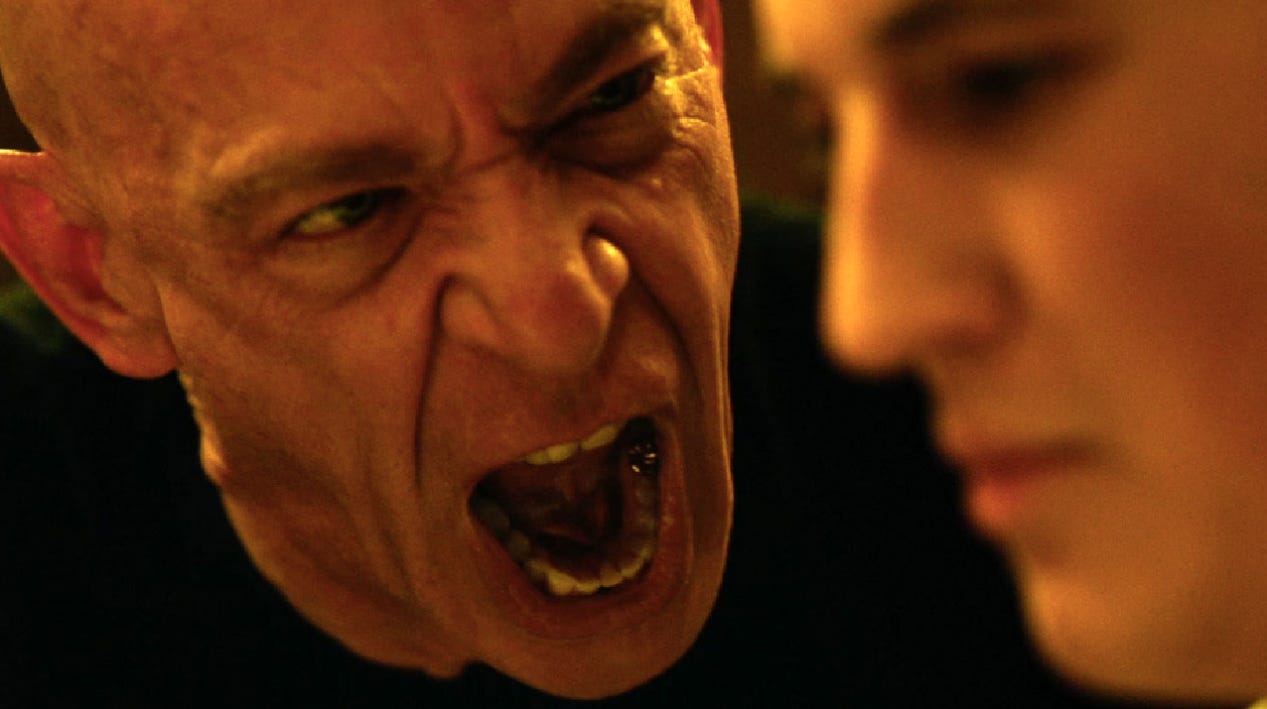Personal notes on motivation and Theories of Everything
The difference between catalyzing and catastrophe.
The movie Whiplash was heavily informative to me.
The teacher (Fletcher) was abusive, always keeping the students vying for approval with their self-doubt peaking to provoke them to not be disheartened but to apply more effort and increase their standards.
Fletcher said he wasn’t looking to produce just another drummer. He wanted another Charlie Parker or Buddy Rich. He was asked, “But don’t you fear that you would dissuade and discourage the next Charlie Parker?” He said, “No... Charlie Parker would never be discouraged.”
That’s powerful.
To me, Fletcher is the same as the universe. Or more precisely, my perception of how the universe treats me. I’m unconscionably motivated by wanting to prove myself to myself, almost to the point of harm. Not quite there, fortunately, since I have a wife who keeps me grounded, but without her, then yes, I would perhaps destroy myself because I’m so insecure. Whatever knowledge I have or whatever skill set I currently possess, it’s not enough. It’s not good enough. It’s not fast enough. It’s not intelligent enough. It’s not original enough.
I see other people exceeding me in each domain that I care about, and it bothers me.
Anyhow, some of the emails I get from the audience of Theories of Everything state that not only do they get knowledge from the channel, but more importantly, they get the knowledge that some concept they previously thought they understood (such as energy) isn’t so well-defined and one perhaps doesn’t actually understand / model this concept with the indubitable accuracy they had previous thought. Rather than that merely irritating them, it motivates them to then want to understand deeper.
I think that’s a great encapsulation of what this channel (I?) aims to do at its best: to show you that what you thought you knew is not the case, but not to leave you bereft... No. It’s rather to fill that void with a motivation to investigate further.






Everyone loves you Curt and what you do. And sees how clever and committed you are. Rest is a necessary part of sustainability.
Curt, your Fletcher-as-universe metaphor hits home for anyone who's wrestled with intellectual growth. At 82, I recognize that relentless drive you describe - I felt it throughout my engineering career. What strikes me is how you've identified the catalytic power of productive uncertainty.
Your channel does something remarkable: it shows people that concepts they thought they understood (like "energy") aren't as clear-cut as they believed. Rather than discouraging viewers, this creates what I'd call productive curiosity - the kind of not-knowing that opens possibilities rather than closing them.
The big shift for me came just two months ago through Emily Adlam's appearance on TOE. Her "all-at-once" view - the universe as a completed Sudoku puzzle rather than a film playing forward - fundamentally changed my thinking from a "systems, process" worldview to understanding constraints. That's no small pivot at my age, but it's been energizing rather than overwhelming.
The Charlie Parker principle you mention is spot-on: authentic creators can't be discouraged because they're participating in something larger than ego-protection. They've moved beyond proving themselves to discovering what's possible.
Having watched TOE since its inception, I think what really drives you - even if you don't always recognize it - is the same thing that's driven my whole life: doing what you love. That passion comes through in every episode. You're not just chasing approval or trying to be the smartest guy in the room. You genuinely love wrestling with these deep questions about reality.
Your approach creates optimal challenge - the kind that strengthens rather than breaks the learning system. You're modeling how to maintain intellectual courage in the face of uncertainty. Keep following that curiosity. Some of us old-timers are still learning alongside you.